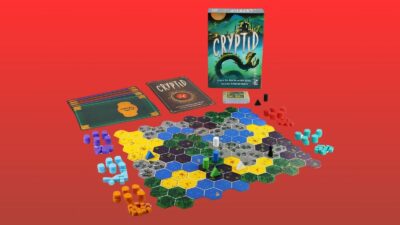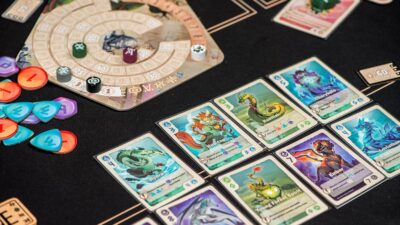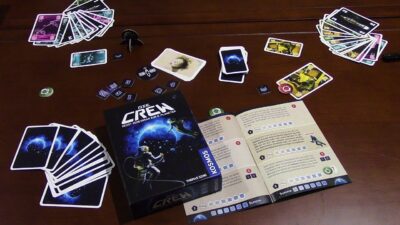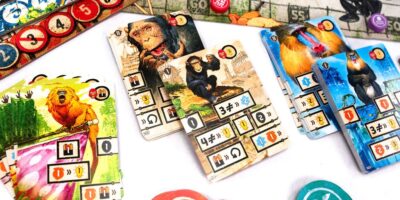Unlike a lot of the social simulation games coming out in the 2000s, namely SPORE and any installment in The Sims franchise, Nintendo’s ANIMAL CROSSING really captured a unique, child-like zen quality that was lacking in the genre. From the music, to the cartoon-like visual design, to the simplicity of the task-driven gameplay, not to mention the delightful, carefully written character dialogue, the original GameCube release delivered a peaceful, meditative experience at a time when so much of console gaming was over-the-top and rambunctious just for the sake of justifying the medium.
Retrospectively, 2001’s ANIMAL CROSSING captured qualities and tonalities that we now take for granted in the mobile gaming sphere. While it wasn’t quite a FARMVILLE precursor, it did offer a relatively mindless experience that was beautifully designed, well curated, and most importantly, helplessly addictive, and so it makes perfect sense that two of Nintendo’s subsequent releases, WILD WORLD in 2005 and NEW LEAF in 2010, were released on handhelds. The experience of checking in on your town, meeting your neighbors, buying furniture and clothing, and then checking out made more sense on-the-go and in microdoses than it did tied down to a home console. Even if those subsequent releases never quite hit the high marks of the original, they smartly figured out that the Animal Crossing formula was best ingested in small doses. All of this has lead to Nintendo’s newest release, POCKET CAMP, which attempts to extract over 15 years worth of knowledge and adequately port it to the iPhone, and the results are somewhat mixed.

After I took this screenshot, I thought long and hard about how furries feel about this game.
POCKET CAMP explores the world of camping, or perhaps more accurately, the world of glamping, as you become the owner and proprietor of a campsite that is looking for neighboring animals to come and stay for a while. As an Animal Crossing game, POCKET CAMP is naturally filled with needy folks who are looking for you to do some extra work for them in exchange for goods and services, and getting animals to visit your town won’t be easy. By collecting bugs, catching fish, and harvesting fruit, you can effectively “trade” for money, supplies, or overall goodwill, which can be used to level up and gain more visitors. Over time, the more visitors you have and the more bartering you do, the higher level you will become, allowing you to have the best possible campsite.

Bud, no one gets hurt if you don’t play no game. Nobody gets hurt. Look at me. Look at me. I’m the campsite captain now.
By offering bugs, shells, and fruit to random strangers, you gain both the love of these animals, as well as money (“bells”) and supplies, which can be used to make furniture. The animals of ANIMAL CROSSING have grown more demanding in their latest iteration, essentially strong-arming you to buy or create furniture that THEY like if you have any hope of getting them into your camp ground, and most of the gameplay is spent collecting things so you can later woo an animal into your camp and (theoretically) gain a better relationship with them.
Does that sound boring? My instinct would be to tell you that the franchise has always been built on this kind of gameplay and that, if it sounds boring, this franchise likely isn’t for you—the premise of Animal Crossing has never amounted to more than simple errand running and item collecting, and POCKET CAMP naturally boils even those elements down to more simplistic ideas. But POCKET CAMP really is somewhat boring, even by Animal Crossing standards. Stripping away the open world elements of past games makes traveling feel small and unsatisfying, and in an effort to push microtransactions, the ability for the world to change periodically is bogged down by timers that can really only be advanced with real world dollars, AKA “Leaf Tickets,” which can be either purchased in-game or earned as time goes on. In past games, the random chance to run into KK Slider or stumble upon the Cherry Blossom festival was part of the joy of the game, and in POCKET CAMP, that element of surprise is almost entirely absent.

Yo, straight up, if you have a good reason for why the camper exists, shoot me a DM on Twitter, @cjsimonson, because this was baffling. I put a JUNGLE GYM item in there. That’s BONKERS.
Most of the added features to the game are maddeningly meaningless. You move by way of a camper that you can spend money to upgrade, but the upgrades are purely aesthetic, only allowing you more internal square footage for which to add furniture—an ability I didn’t even realize was possible until I’d been playing the game for four days. I spent a hopeless number of Bells (that I would later have to pay back in loan form) thinking that by upgrading my camper I would be able to travel to more areas of the world, only to find out that, I guess, I could now put a swing set in the second floor of my absolutely useless ride. The ability to interact with other gamers via a bogged down multiplayer component also lacks imagination, essentially making the feature a glorified show-and-tell where you can visit other players and see their camps (or fucking campers) and maybe buy things from their “Market Box,” a store where you can sell your items to others. For what reason you would visit their campsite (other than to give them “kudos” on having a great camp, something you would only do to check off any number of the in-game goals) is beyond me. And don’t forget, even if you want to have the coolest looking camp possible, at the end of the day what your camp looks like holds very little bearing over whether or not animals will stay or leave your camp.
Some of the mainstay qualities of the Animal Crossing universe do translate with brilliance on iOS. The music remains soothing and the character dialogue remains as sharp as it ever was, making reading this game a genuine delight. The menu layout has translated brilliantly onto touchscreens, and moving your avatar around with simple drags or taps is effective. From a conceptual level, the idea that Animal Crossing would be a great game to pass 20 minutes in the dentist’s office remains sound—the soothing nature of arranging your camp and building out relationships with your neighbors is unprecedented. But the technical achievements here don’t make the actual game any more fun. POCKET CAMP is a fair way to pass time and die-hard fans will find a fair amount to appreciate, but it generally lacks the element of crazed, meaningless compulsion that previously pushed players to obsessively play.
Verdict: Do Not Recommend
Reviewed on mobile
















Comments